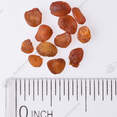 Best Sellers Botanical Name: Calycanthus floridus  Botanical Name: Catalpa speciosa  Botanical Name: Cercis canadensis Northern Zone 5  Botanical Name: Cladrastis kentukea  Botanical Name: Coffea arabica  Botanical Name: Cornus sericea  Botanical Name: Eucalyptus deglupta  Botanical Name: Nyssa sylvatica Southern  Botanical Name: Passiflora caerulea  Botanical Name: Pinus eldarica  Botanical Name: Pinus parviflora  Botanical Name: Pinus strobus New York  Botanical Name: Pinus sylvestris England, zone 406 (East Anglia) Common Name: Scots Pine, Scotch Pine  Botanical Name: Prunus avium 'CVI'  Botanical Name: Prunus avium Alkavo  Botanical Name: Sequoiadendron giganteum  Botanical Name: Tilia cordata  Botanical Name: Trifolium repens  Botanical Name: Vitis vinifera
|
Phone: (315) 497-1058 About Us Suppliers Resource Center Foreign Orders FAQ New Arrivals Best Sellers Contact Us Newsletter Seed Catalog Online Login



























































































